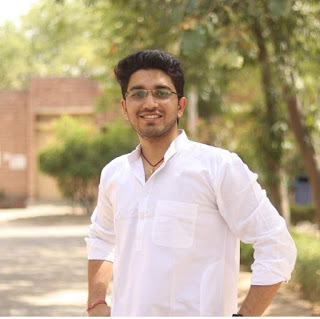INDIAN GOVERNMENT SCHOOLS AND THEIR CHALLENGES
On 4 August 2009, the parliament of India added the article 21A in the constitution and passes the "Right to education" act. According to this act, every child between the age group of 6 to 10 years should get access to free and compulsory education. So in the last few years lot of government schools have built across the country to make sure that every Indian child acquires basic education. But it's very unfortunate that in the last few years itself Indian public schools lose 13 million of its students. According to data of education ministry 65.2% (113 million,) of all school students in 20 states go to government schools, in that case, it becomes very necessary that these millions of students get quality education in government schools. So here in this article, we will discuss challenges that are hindering quality education in many Government schools across the nation.
TEACHER - CREATOR OR DESTROYER
There is a very famous shlok in Sanskrit which states that "GururBrahma GururVishnu GururDevo Maheshwaraha means that Guru is the Creator, Guru is the Preserver and Guru is Destroyer. This shlok perfectly describes the power that a teacher and Guru have. Teacher of any country is the architecture of the future of that nation. When India had witnessed the great gurus like Valmiki, Dronacharya, and Chanakya in its history then there is no place for the debate that India lacks potential teachers. But the question is if India has talented teachers then where they are because according to a data of 2017 there are around 11 lakh teachers in total who are without proper qualification in schools and even its quite common for Indian media to expose the knowledge and teaching abilities of many teachers with a proper qualification in their sting operations.
There is no doubt in the fact that there are many skilled teachers in our education system but at the same time, we can't ignore the fact that there are also lakhs of those who are acting as a poison to the Indian education system. The day all the teachers of the country understand that they are just not employees of the government but the shapers of the future of the nation the things will automatically get better. So all the teachers have a great responsibility on their shoulders.
INFRASTRUCTURE AND BASIC FACILITIES- THE REAL NEED
According to the Unified District Information System data for Education (U-DISE) for the year 2013 - 14, there are a total of 18.6% of government schools in a country without a toilet, 51% school have no access to electricity, 5% of government schools have no water facilities and 47.7% schools are lacking playgrounds. If students don't get access even to basic facilities like pure drinking water, washrooms, proper fans, and lights in schools itself then its very difficult to fascinate kids towards schools. It's the duty of central government, state government, District collectors, the village sarpanch, and school principal and teachers that they take the task of providing these facilities in schools as their priority.
EXTRA CURRICULUM ACTIVITIES - A GREAT ATTRACTION AND ADVANTAGE TO ALL STUDENTS.
"Education can never be confined to classrooms" the day society and students realized this fact things will get better to a great extent. If we want students to reach schools on their own, not because of temptations like a mid-day meal then we have to give them a better reason to come to schools. We have to expand the boundaries of education beyond books. In a country like India where unemployment and underemployment are a severe issue the logic that students should go to school and study well because ones they do so they will get a great job in the future then this is not going to work. Schools should integrate activities like Debate, dance, music, sports, art, craft, drama, storytelling, writing, and stage performance with their main education curriculum. The time schools begin to
give extra curriculum activities equal importance as classroom education, students will automatically direct their paths toward schools and education.



Comments
Post a Comment